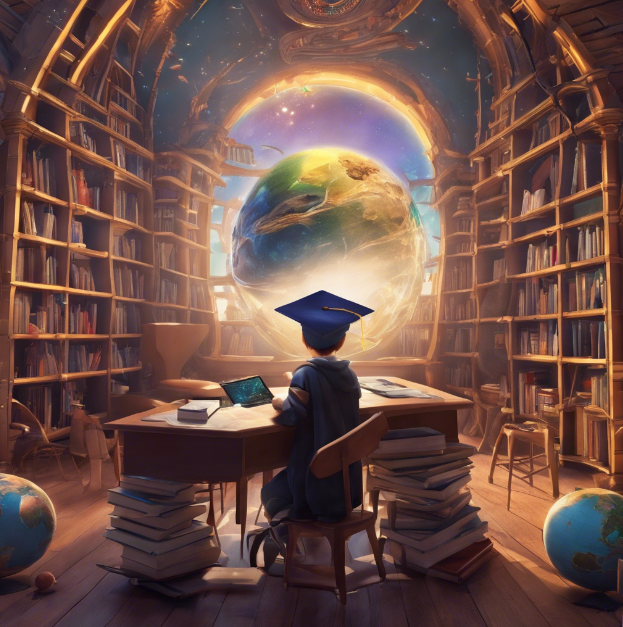Education in the Metaverse: a change in the paradigm
- Rocío García González

- 5 jul 2023
- 3 Min. de lectura
Actualizado: 14 ago 2024
The Metaverse, once a mere concept in science fiction, is now on the brink of becoming a reality in our increasingly digital world. This immersive virtual space aims to create a universal experience on the internet, transforming the way we interact, socialize, and even learn. As this technological revolution gains momentum, it is essential to explore how the Metaverse may revolutionize education and usher in a new era of learning.
Traditional education has primarily relied on physical classrooms, textbooks, and face-to-face
interactions. However, the emergence of the Metaverse brings with it a profound shift in the way knowledge is acquired, shared, and experienced. Within the Metaverse, students can step into virtual classrooms, explore interactive simulations, and engage in collaborative learning experiences that transcend physical limitations. This newfound dimension of learning has the potential to foster creativity, critical thinking, and engagement in ways we have never seen before.
One of the most significant advantages of education in the Metaverse is its ability to break down geographical barriers. No longer confined by physical proximity, learners from across the globe can connect, collaborate, and share knowledge effortlessly. Students in remote areas or underserved communities can access the same educational opportunities as those in metropolitan areas. This democratization of education has the power to bridge the gap between privileged and underprivileged learners, providing equal access to quality learning resources.
Furthermore, the immersive nature of the Metaverse opens up endless possibilities for interactive and experiential learning. Imagine a history lesson where students can virtually step into historical events, witnessing pivotal moments unfold before their eyes. Instead of reading about ancient civilizations, they can explore virtual archaeological sites or interact with lifelike simulations of historical figures. This experiential learning approach not only enhances comprehension but also instills a deeper sense of empathy and connection with the subject matter.
In the Metaverse, education may transcend the confines of traditional disciplines. Interdisciplinary learning becomes seamless, as students can seamlessly navigate between various fields, blending art, science, technology, and more. This multidimensional approach encourages a holistic understanding of the world, fostering creativity, innovation, and adaptability – skills crucial for the rapidly evolving future. Students can collaborate with experts from different domains, fostering a rich and diverse educational experience that prepares them for the complexities of the real world.
While the Metaverse holds great promise for transforming education, it also presents challenges that must be addressed. Ensuring inclusivity, privacy, and ethical use of technology within this virtual realm are essential considerations. It is crucial to strike a balance between the benefits of immersion and the need for critical thinking, ensuring that learners can differentiate between fact and fiction in the Metaverse. Moreover, educators must adapt to new pedagogical approaches, acquiring digital literacy skills and embracing the potential of virtual environments to enhance teaching and learning.
In conclusion, as the Metaverse moves closer to becoming a tangible reality, its potential to
revolutionize education cannot be understated. This universal and immersive virtual space has the power to transcend geographical boundaries, foster experiential learning, and encourage interdisciplinary exploration. By harnessing the transformative capabilities of the Metaverse, we can create a future of education that is inclusive, dynamic, and limitless. As we embark on this new era, it is crucial for educators, policymakers, and society as a whole to collaborate in shaping an educational landscape that maximizes the potential of the Metaverse for the betterment of generations to come.
Rocío García González

.png)





Comentarios